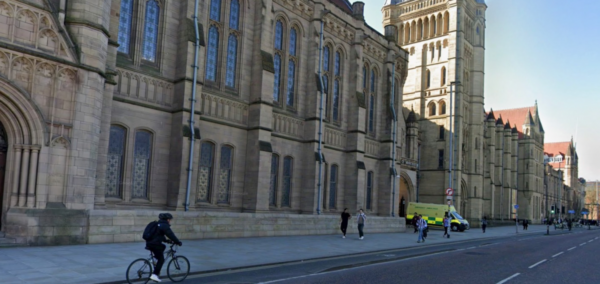Durham University refuses to comment further amid 10.3 per cent college price hike backlash
It is the biggest fee increase in over ten years
It is fair to say Durham students have been put through our paces this year alone however today Durham University announced that its college accommodation and catering fees will increase by 10.3 per cent for the next academic year.
The maintenance loan has only increased by 2.8 per cent, making the biggest college accommodation rent increase in over ten years all the more difficult during a cost of living crisis. Not only will this affect returners to college accommodation, but it will also impact thousands of new incoming students. The university has declined further comment.
So, what does a 10.3 per cent increase look like?
- A standard catered room, which has a shared bathroom, for the contracted 39 weeks will cost £9156 (which is £234.77 per week).
- A standard no-catering room, with an en-suite, for the contracted 39 weeks will cost £6981 (which is £179 per week).
- While a postgraduate’s 50-week contract in a catered, shared bathroom, will increase to £10,452 (which is £209.04 per week).
- Finally, a postgraduate’s 50-week contract in a non-catered standard room, with a shared bathroom, will increase to £7600 (which is £152 per week).
The university has acknowledged that it is “aware of the pressures of the cost of living on students and is investing significantly in the Durham Grant scheme”, and is implementing measures to support students with a range of initiatives, such as the free breakfast club set up earlier this academic year.
Most Read
It is common knowledge that Durham is currently suffering a housing crisis as a perfect storm of increasing cost of living, increases in student population and poor residential infrastructure has caused rent to soar and housing locations to widen. However, the biggest issue is that demand just dominates the supply all while landlords profit from hiking up the prices affecting students and locals alike.
Of recent, the housing crisis saw that most student accommodations were signed for by the end of October, with many waiting overnight in queues outside estate agents in order to sign any house available. Others have had to live further afield and have taken to communicating from further away such as Newcastle and Spennymoor.
The 93% Club launched a campaign to urge the university and local government to acknowledge their claim that the housing system in Durham doesn’t prioritise the student’s best interests, and that both organisations need to come together to fix the “broken” housing system.
We must acknowledge that due to the cost of living and services going up, it’s expected that staff wages and facility running costs will rise. However, the maximum government student maintenance loan has only increased by 2.8 per cent to £9978 (outside of London) which only just covers the cost of a standard catered room, and is only available to students whose household income is below £25,000.
A student who wishes to remain anonymous says: “If I was to do a master’s this will impact my decision as financially, I couldn’t afford it now”.
The full statement by the university reads:
“The University has approved a 10.3 per cent increase in both accommodation and catering charges. As you will be aware, the University is experiencing rises in our operating costs in the current economic climate. We have tried to keep increases to our accommodation and catering charges as low as possible, and to make sure that college-managed accommodation remains competitively priced in relation to private accommodation in Durham City. The University has an agreement with the Students’ Union that accommodation and catering charges will increase by no more than inflation (RPI) each year. This year, mindful of the exceptionally high rates of inflation, we have worked hard to keep the increases in accommodation and catering charges to 3.1 per cent below the latest RPI figure. The increases to our accommodation and catering charges will not cover the rises in our operating costs.
“For any students still unable to find a room for next academic year, there will be a contact email available from Monday 13 February to provide support and guidance in finding accommodation.
“The university is aware of the pressures of cost of living on students and is investing significantly in the Durham Grant Scheme, supporting students from low-income families. The Scheme has been increased by 10 per cent this year and will increase by up to 13.6 per cent in academic year 2023/24. This means that from next academic year, home undergraduates who do not already have an undergraduate degree and who have a household income of less than £30,000 as assessed by Student Finance England (or equivalent) will receive a Durham Grant of £2,500. Similar students, who have a household income of between £30,001 and £47,200, will receive a Durham Grant of between £2,495 and £780.
“Overall, we are investing an additional £600,000 in the Durham Grant Scheme this year, with an additional investment of £900,000 next year. This will take our annual spend on the Durham Grant Scheme to c.£7.5 million next year. The Durham Grant is payable in addition to government funding, and eligible students do not have to pay it back.
“In addition, the University offers to all students who need to bridge financial gaps support grants of up to £6,000 per annum on a planned or urgent basis. We are in discussion with student leaders about the best way to promote and target these grants.
“We also have instant access funds for students in urgent need of financial assistance. These funds allow students to obtain shopping and catering vouchers, or cash.
“We will continue to invest in measures to support students. There are already a number of other initiatives available, including free breakfast clubs and the ‘Too Good to Go’ surplus food scheme. Full details can be found on the Cost of Living Hub: Cost of Living Hub – Durham University.
“Students who are experiencing difficulties should contact their College in the first instance, where they will find support.”
If you need help or guidance due to the college accommodation rent increase, you can access financial help here: Cost of Living Hub – Durham University.



















